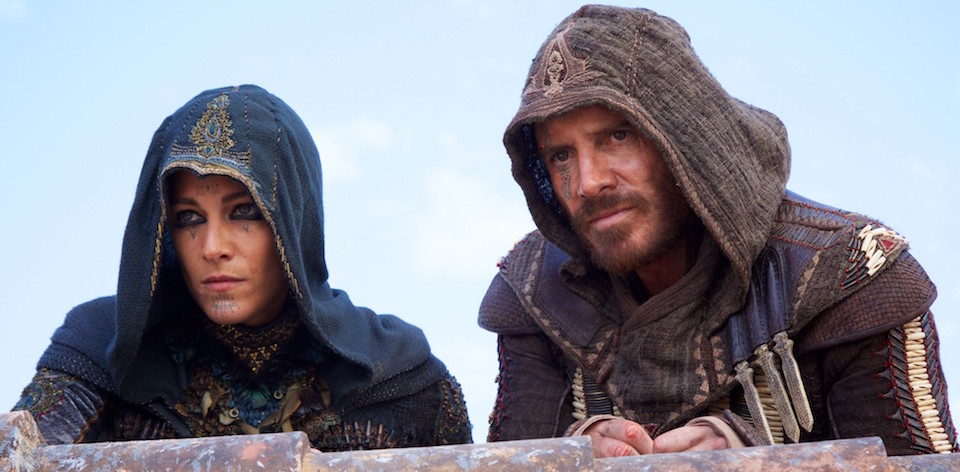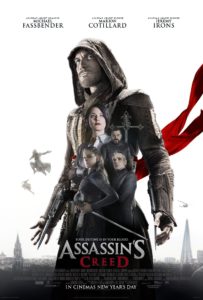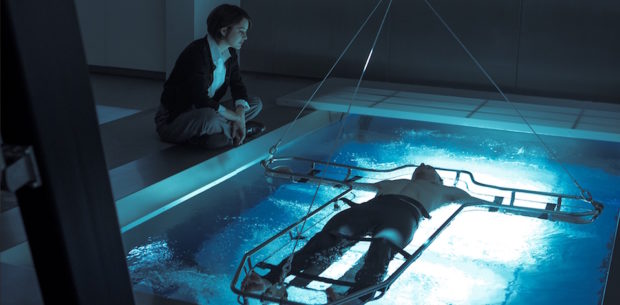The long gestating ASSASSIN’S CREED film, based on the video game series of the same name, finally makes its way to the screen in a form that is visually faithful to the source material. Yet Australian director Justin Kurzel makes a common mistake by assuming that gamer audiences will accept loose logic if you cover them in a plethora of disconnected and overlapping action sequences.
In a storyline that would make Menahem Golan proud, an ancient order of assassins fight to protect the Apple of Eden from rival Templars. In the present day, condemned criminal Callum Lynch (Michael Fassbender) is forced by Sophia Rikkin (Marion Cotillard) and her father (Jeremy Irons) to join the Animus Project , tapping into the memories of his ancestor Aguilar de Nerha, an assassin during the Spanish Inquisition. However, as he gets closer to finding the location of the Apple, his skill level grows to fight enemies in the present day.
As a narrative piece, ASSASSIN’S CREED makes little to no sense on a scene-to-scene basis. Couched in doublespeak about violence being a disease and the Apple containing “the genetic code for free will,” Michael Lesslie, Adam Cooper, and Bill Collage’s script focuses on a McGuffin that nominally propels the characters to action, even if the urgency is purely an artificial creation. The constant cutting back and forth between the Animus and the ‘real world’ makes the film a series of stop and starts, which is about the closest any film has gotten to the realities of blockbuster gaming.
Which is why it’s also disappointing that Kurzel’s blocking of the action further obscures the already perfunctory plotting. In what feels like extended cutscenes, there’s no sense of style. Individuals are obscured with a maelstrom of flailing limbs and environmental chaos, a series of uninventive close-ups where death is irrelevant, and the scope of the otherwise interesting era is limited to corridors and snarling faces. The outside world is ia repetitive CG image of an eagle soaring over the landscape, a nod to the iconic imagery of the Ubisoft games.
ASSASSIN’S CREED spends most of the elongated running time setting up future stories, leaving the otherwise impressive cast with very little to do. Fassbender is comfortable with big budget posturing, but even Charlotte Rampling was probably left wondering why she turned up for her handful of scenes at all. This is ultimately where this adaptation falls down as a feature film, requiring fans to be invested enough in a story where nothing actually happens on the slim promise that it might in the sequels.
[stextbox id=”grey” bgcolor=”F2F2F2″ mleft=”5″ mright=”5″ image=”null”]2016 | US | DIR: Justin Kurzel | WRITERS:Michael Lesslie, Adam Cooper and Bill Collage | CAST: Michael Fassbender, Marion Cotillard, Jeremy Irons, Brendan Gleeson, Charlotte Rampling, Michael K. Williams | DISTRIBUTOR: Fox | RUNNING TIME: 115 minutes | RELEASE DATE: 21 December 2016 (US), 1 January 2017 (AUS) [/stextbox]






